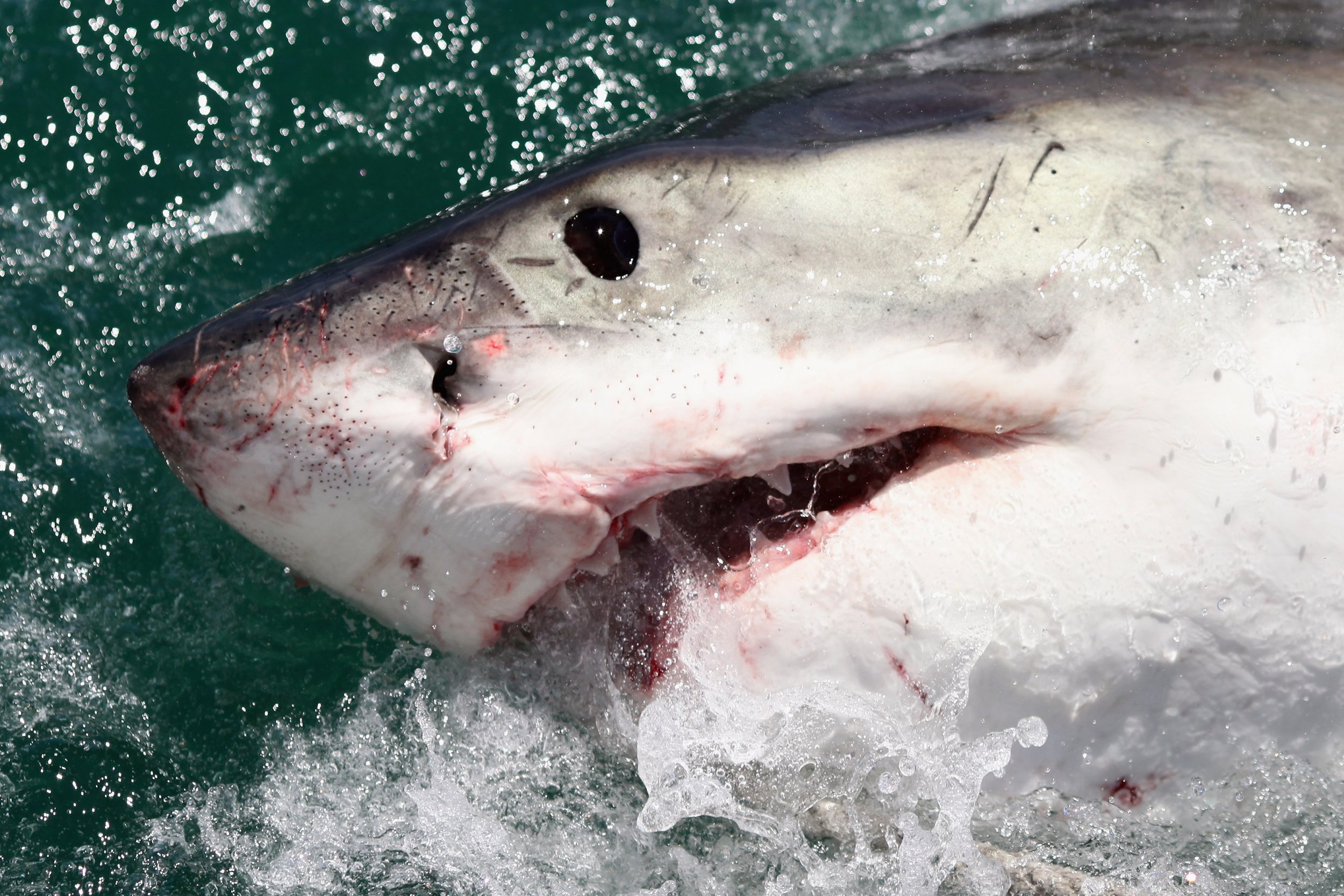
The megalodon may have been a giant predatory sea creature measuring as much as 50ft, but scientists believe it was no match for the competition posed by the great white shark—who they think wiped it out.
An international team of paleontologists arrived at this conclusion as they tried to answer when the Otodus megalodon went extinct. They think the biggest ever shark was likely killed off at least a million years prior to current estimates. These findings were published in the journal Peer-J.
To calculate when the massive sea creatures were last seen in Earth's oceans, the researchers studied every megalodon fossil discovered in California and Baja California, Mexico, where the remains of these fish are plentiful. They also studied existing data on fossils, and found inaccuracies. The results led the researchers to conclude that the megalodon went extinct much earlier than previously thought.
This calls into question past research that suggested the great white's hulking cousin went extinct around 2.6 million years ago because of a supernova, believed to have spewed out radiation and caused marline life to mutate and fall ill with diseases such as cancer.
Dr. Robert Boessenecker, study co-author and a vertebrate paleontologist at the College of Charleston, commented: "We used the same worldwide dataset as earlier researchers but thoroughly vetted every fossil occurrence, and found that most of the dates had several problems—fossils with dates too young or imprecise, fossils that have been misidentified, or old dates that have since been refined by improvements in geology; and we now know the specimens are much younger."
"The extinction of O. megalodon was previously thought to be related to this marine mass extinction—but in reality, we now know the two are not immediately related," Boessenecker said.
And as sea mammal fossils dating back between one to two million years are rare, his team wondered whether the mass extinction happened at all. His team put forward an alternative theory. Instead of an "immediate and catastrophic extinction" triggered by an astronomical cataclysm like a supernova, evidence indicates there was more likely a time when species went extinct and others appeared, in what is called a faunal turnover.
The new extinction date gives a window of around 400,000 years for the great white shark to wear away at the megalodon. The paleontologists believe newly evolved great white sharks could have been a similar size to baby megalodons, leading to the depletion of their population.
Boessenecker said: "We propose that this short overlap (3.6 million to 4 million years ago) was sufficient time for great white sharks to spread worldwide and outcompete O. megalodon throughout its range, driving it to extinction—rather than radiation from outer space."
More answers regarding the fate of the megalodon are expected from the scientists who were last year awarded a grant to explore why it went extinct.
Sora Kim from the University of California Merced, who was part of the team awarded the money, commented at the time: "There are many ideas about why the megalodon went extinct.
"Scientists have argued that changes in the megalodon's available prey base combined with climate change led to their demise. But these are just hypotheses. There have been no rigorous studies that demonstrate this conclusively."
Uncommon Knowledge
Newsweek is committed to challenging conventional wisdom and finding connections in the search for common ground.
Newsweek is committed to challenging conventional wisdom and finding connections in the search for common ground.
About the writer
Kashmira Gander is Deputy Science Editor at Newsweek. Her interests include health, gender, LGBTQIA+ issues, human rights, subcultures, music, and lifestyle. Her ... Read more
To read how Newsweek uses AI as a newsroom tool, Click here.








